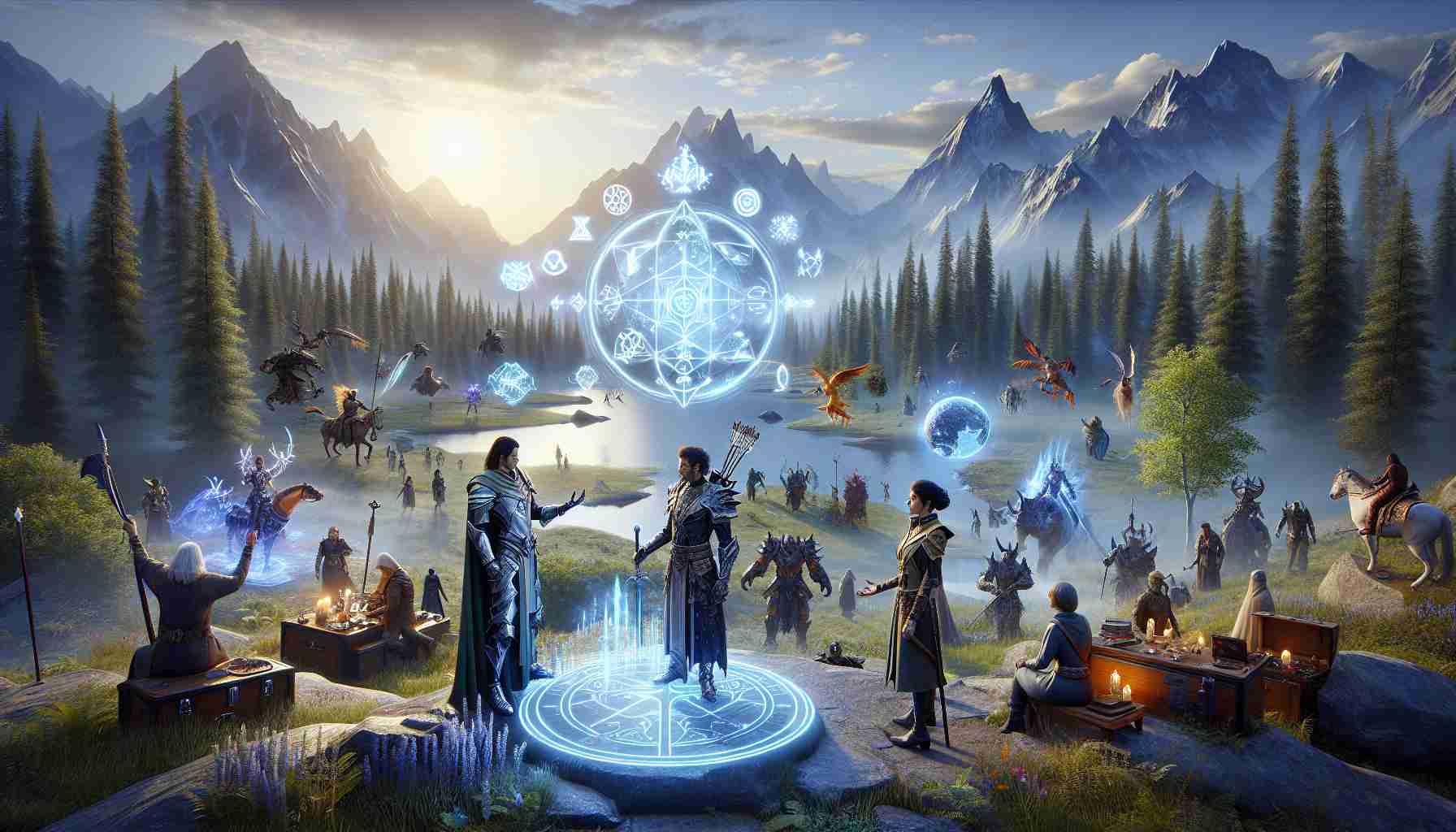Summary:
Open-world RPG games with enhanced AI are a new trend in the gaming industry that aims to provide players with more immersive and realistic gameplay experiences. These games feature open and expansive virtual worlds that are populated by non-player characters (NPCs) with advanced artificial intelligence (AI) systems. This article explores the concept behind open-world RPG games with enhanced AI, their benefits, and the challenges that developers face in implementing this technology.
Introduction:
Open-world role-playing games (RPGs) have been popular among gamers for a long time. These games allow players to explore vast and detailed virtual worlds, complete quests, and interact with various characters. However, one limitation of traditional open-world RPGs has been the lack of dynamic and responsive NPCs.
In recent years, game developers have been striving to overcome this limitation by incorporating enhanced AI systems into their open-world RPGs. By giving NPCs more lifelike behavior and intelligence, these games offer players a more immersive and realistic experience.
Benefits of enhanced AI in open-world RPGs:
1. Immersive gameplay: Enhanced AI allows NPCs to exhibit realistic behaviors, making the game world feel alive and dynamic. NPCs can have their own schedules, follow their own routines, and react to the player’s actions, creating a more engaging and immersive experience.
2. Dynamic storytelling: With enhanced AI, NPCs can dynamically respond to the choices and actions of the player, leading to branching storylines and multiple outcomes. This adds depth and replayability to open-world RPGs, as players can experience different narratives based on their decisions.
3. Challenging encounters: NPCs with advanced AI can provide more challenging encounters for players. They can adapt their strategies and tactics, making combat encounters more engaging and unpredictable. This adds to the overall difficulty and excitement of the game.
Challenges in implementing enhanced AI:
1. Performance and hardware limitations: Implementing advanced AI systems can be resource-intensive and may require powerful hardware to run smoothly. Developers need to optimize their games to ensure that the AI does not negatively impact the overall performance.
2. Balancing player experience: While enhanced AI offers more realistic and challenging encounters, developers need to strike a balance between providing challenging gameplay and not overwhelming the player. It is crucial to ensure that the AI systems do not frustrate or deter players from enjoying the game.
3. Development complexity: Creating robust AI systems for NPCs is a complex task that requires significant time and effort. Developers need to design AI algorithms that can handle a wide range of scenarios and interactions, while also considering the limitations and constraints of the game’s design.
Frequently Asked Questions (FAQ):
Q: Are there any notable open-world RPG games with enhanced AI?
A: Yes, several games have already implemented enhanced AI systems. Some notable examples include “The Witcher 3: Wild Hunt” and “Red Dead Redemption 2.”
Q: Does enhanced AI only affect combat encounters?
A: No, enhanced AI can impact various aspects of the game, including NPC interactions, decision-making, and world simulation.
Q: Will enhanced AI make open-world RPGs more difficult?
A: Enhanced AI can make the game more challenging, but developers have the flexibility to adjust the difficulty level to cater to different player preferences.
Q: Can enhanced AI improve replayability?
A: Yes, enhanced AI allows for branching storylines and multiple outcomes based on player choices, which enhances the replayability of open-world RPGs.
Sources:
– “The Witcher 3: Wild Hunt” – CD Projekt Red, cdprojekt.com
– “Red Dead Redemption 2” – Rockstar Games, rockstargames.com
The source of the article is from the blog klikeri.rs
